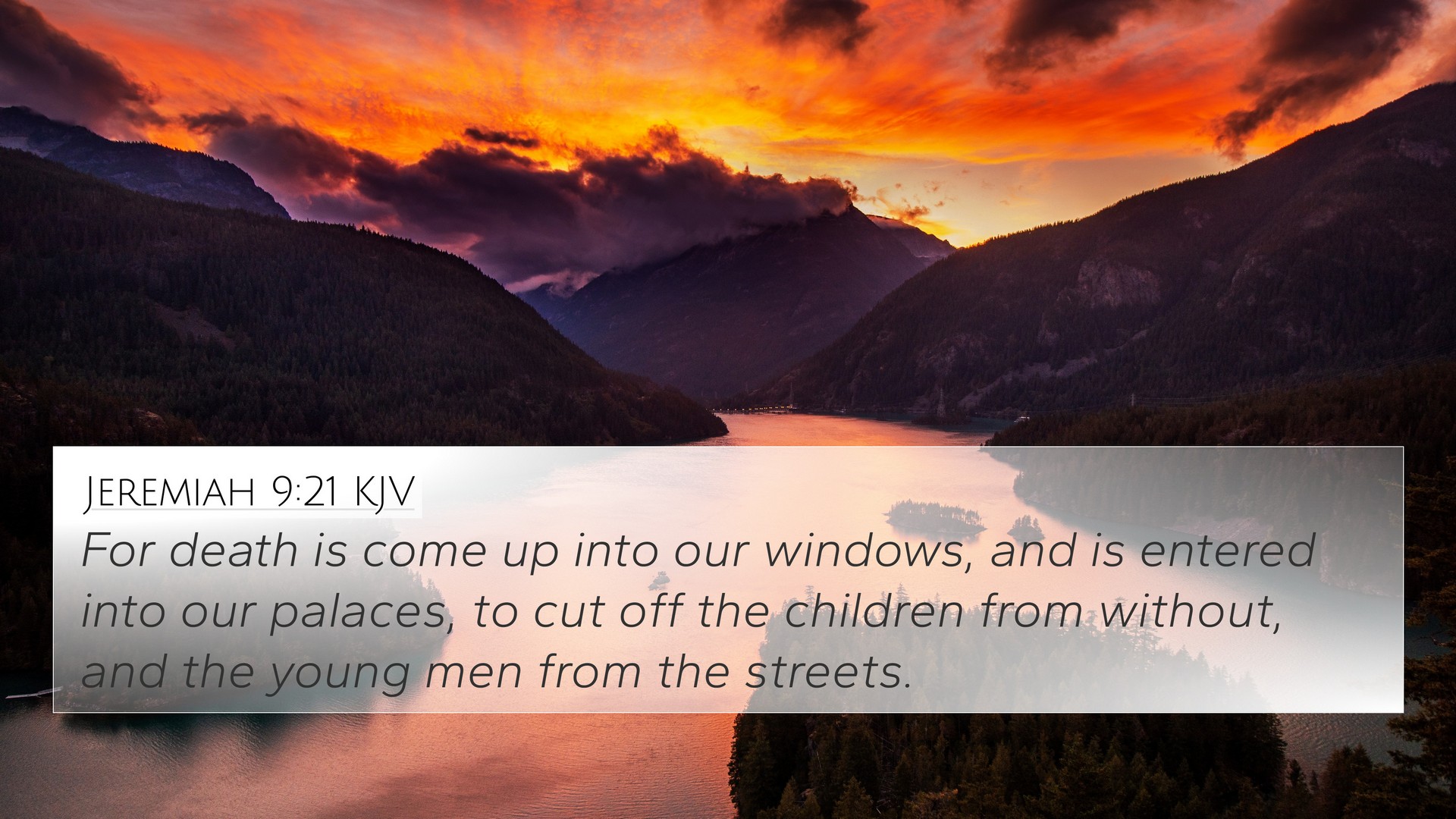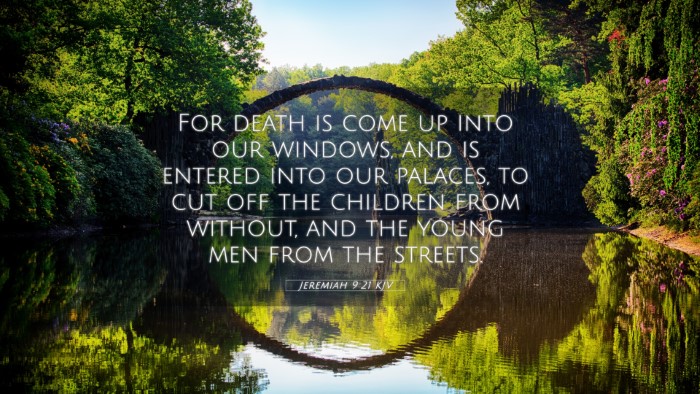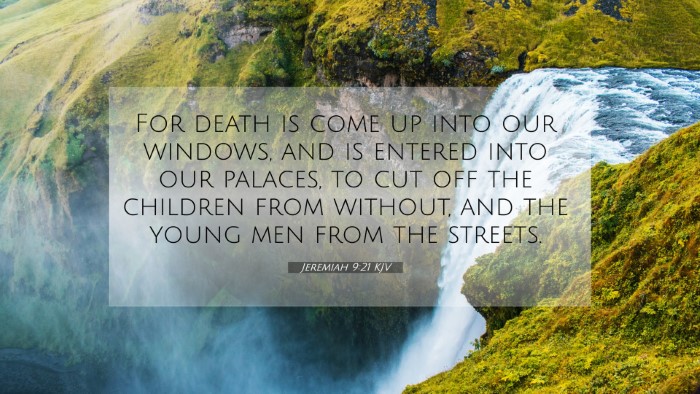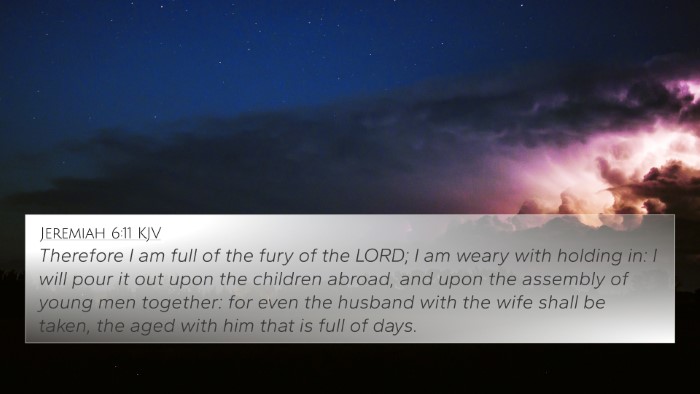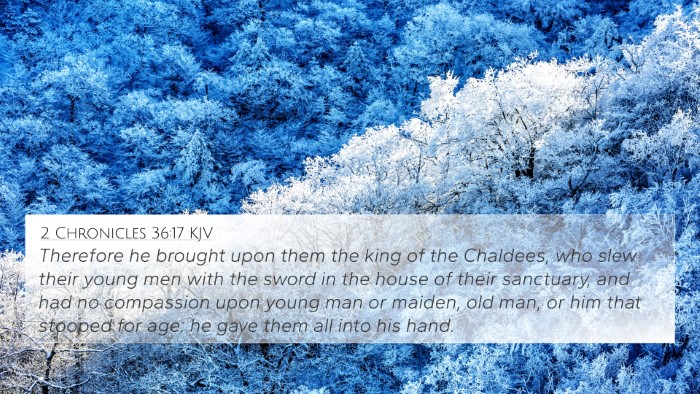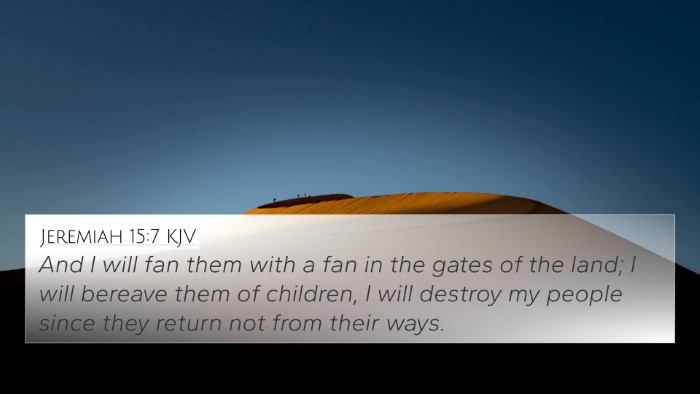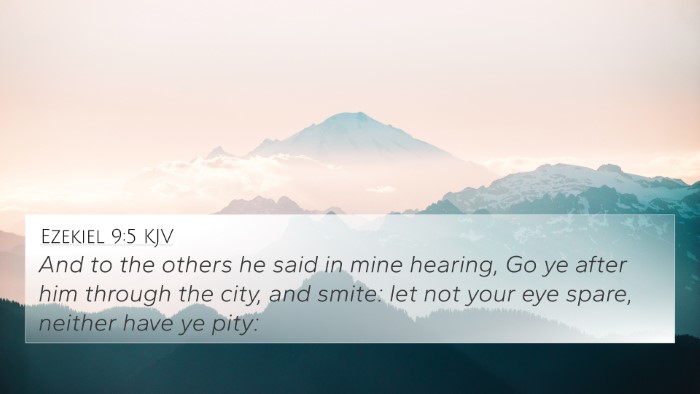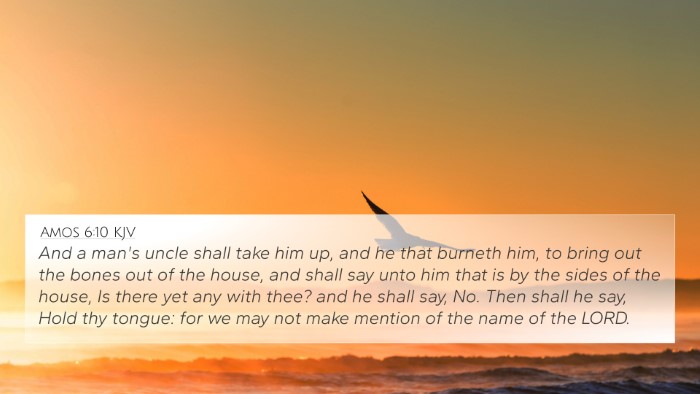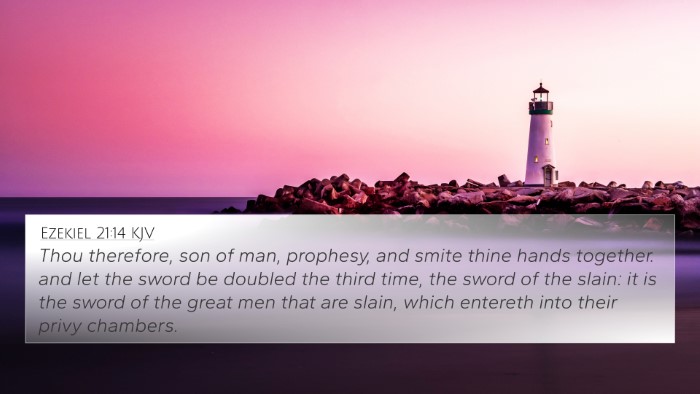Understanding Jeremiah 9:21
Jeremiah 9:21 states: "For death is come up into our windows, and is entered into our palaces, to cut off the children from without, and the young men from the streets." This verse carries profound implications regarding the impending judgment faced by the people of Judah due to their rebellion against God.
Commentary Insights
This passage describes a devastating condition, where even the strength and vitality of the youth are at risk, indicating the severity of the situation in Jerusalem. The imagery of death "coming up into our windows" signifies a breach of safety and security, illustrating how pervasive the tragedy of sin is.
Key Themes and Meanings
- The Judgment of God: The verse reflects the ultimate consequence of a nation's turning away from divine commandments. Both Matthew Henry and Adam Clarke emphasize that death is not merely physical but also a spiritual state that leads to destruction.
- The Vulnerability of Youth: The mention of children and young men highlights the generational impact of sin. Albert Barnes notes that when a society strays from righteousness, its future is compromised.
- The Absence of Hope: The desolation represented evokes a sense of hopelessness, where life is extinguished. This aligns with the view shared by Henry regarding the importance of recognizing the seriousness of moral decay.
Cross-References
To better understand Jeremiah 9:21, we can explore several Bible verses that relate directly to its themes:
- Isaiah 1:5-6: Describes the affliction and decay of the nation due to its sinfulness.
- Jeremiah 14:1-3: Illustrates the severe drought and consequences of disobedience.
- Ezekiel 18:30: Encourages repentance to avert judgment.
- Exodus 20:5: Highlights the generational impacts of sin on families.
- Lamentations 1:18: Expresses the suffering and cause of the city's sorrow.
- Matthew 2:16: Reflects the killing of innocents, connecting to themes of loss and devastation.
- Romans 6:23: "For the wages of sin is death," underscoring the spiritual implications of sin.
- Revelation 21:8: Discusses the finality of death for the unrepentant.
- Proverbs 14:32: "The wicked is driven away in his wickedness: but the righteous hath hope in his death," contrasting the fate of the wicked versus the righteous.
- 2 Chronicles 36:16: Details the consequences of the people mocking God’s messengers.
Thematic Connections
This verse provides an opportunity for comparative Bible verse analysis, revealing how themes of judgment, loss, and the future of children interconnect throughout Scripture. Exploring these connections enhances our understanding of God's response to sin and the hope offered through repentance.
Tools for Cross-Referencing
Engaging with the Word of God can be enriched by using various Bible reference resources, including:
- Bible Concordance: A valuable tool for locating specific verses and concepts.
- Bible Cross-Reference Guide: Helps find related verses easily.
- Comprehensive Bible Cross-Reference Materials: Offer insights into multiple connections across the Canon.
- Cross-Reference Bible Study: Use thematic studies to find overarching narratives.
- Identifying Connections Between Old and New Testament: Vital for understanding continuity in God's message.
Conclusion
By studying Jeremiah 9:21 through its commentaries and cross-references, we gain not only a clearer understanding of its meaning but also a deeper appreciation for the interconnectedness of Scripture. Engaging with these texts invites us to reflect on the consequences of sin and the transformative power of repentance, guiding us towards a life aligned with God's will.
